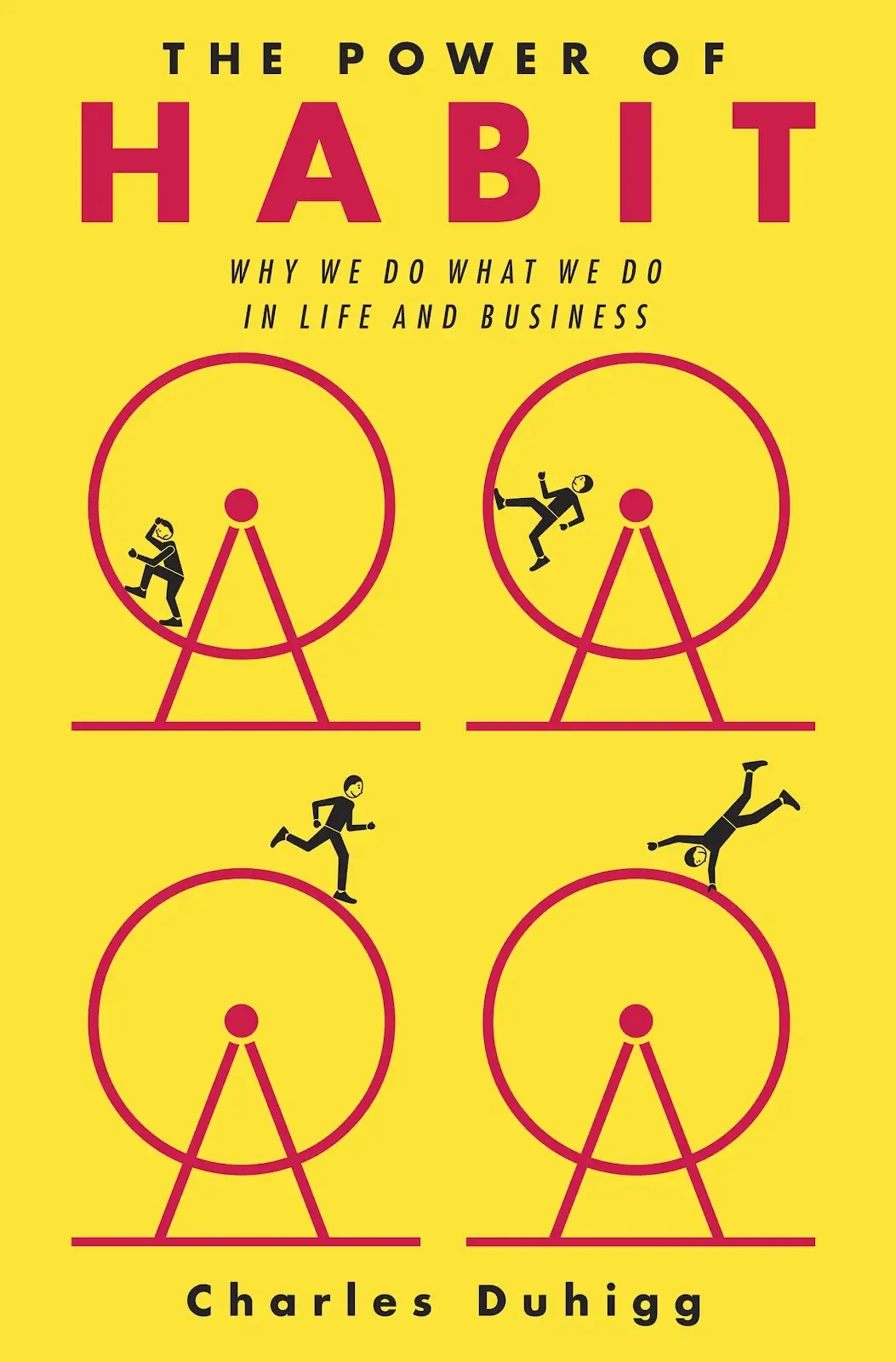The Power of Habit – Charles Duhigg

At its core, The Power of Habit contains an exhilarating argument: The key to exercising regularly, losing weight, raising exceptional children, becoming more productive, building revolutionary companies and social movements, and achieving success are about understanding how habits work. By harnessing this new science, we can transform our businesses, our communities, and our lives.
The Habit Loop
Put simply, the habit loop is composed of cues, routines, and rewards.
Train yourself to notice particular cues, which then trigger routines and bring you rewards.
5 main categories of cues:
– location
– time
– emotional state
– other people
– action immediately preceding the cue
Recognizing what cues you currently have in your life and how to seek them out or avoid them is critical.
Manipulate the Craving
There’s no single way to achieve good habits and quit bad habits.
One trick that might work for you when it comes to breaking bad habits is to not ignore or resist a craving a bad habit cue, but to instead change it.
The people you surround yourself with can affect your success in forming or breaking habits.
You must surround yourself with those who are also trying to form the same habit or trying to break a bad habit.
You must get into the habit (pun intended) of taking responsibility for your bad actions.
Don’t say it isn’t your fault; lean into the difficulty and face the challenge head-on.
Keystone or Foundational Habits
Keystone habits are usually small and result in a “win” for you, which snowballs into greater habit formation and control.
As an example, dieters who keep a food journal are more successful at losing weight.
If you write out a plan about what you’ll do when pain comes knocking on your door, you’ll be more successful at withstanding that pain.
Craving
A craving is the anticipation of a reward.
It’s important to be aware of any cravings you have in your life as they can hijack or start a habit loop early, making it more difficult to quit bad habits.
The truth is that most of what we do is at least partially automated.
Hijacking this tendency of our brain to set certain activities on the back burner can help us form healthy habits that we don’t even need to think about.

